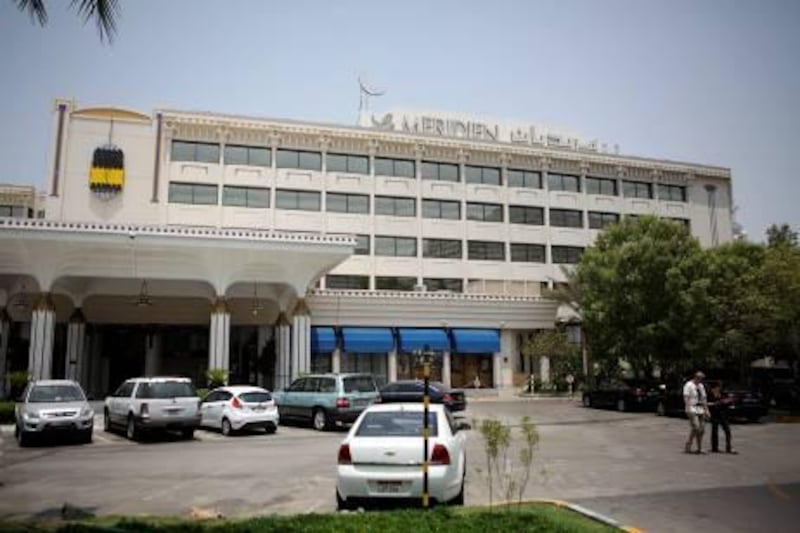Abu Dhabi is famed for its contemporary architecture - iconic buildings like Adnec and the Yas Hotel, soaring towers and undulating skins of steel and glass.
But around these lie another Abu Dhabi, one made up of the concrete structures that sprang up after oil wealth began to transform its landscape but before the past decade's swelling development.
And while Abu Dhabi has sometimes struggled to preserve the buildings and monuments that existed in its more "distant" past, the city's constant evolution poses just as big a threat to the government buildings, bus stations and old hotels that represent its beginnings as a modern city.
Now the Abu Dhabi Authority for Culture and Heritage (Adach) is attempting to address that as it begins to assess which structures deserve modern heritage status to protect them against the encroaching towers.
While the list is not yet complete, it includes the city's old court building, Zayed Sports City, the Adnoc complex on the Corniche, Al Jazeera Hospital and the Armed Forces Officers' Club, as well as less symbolic buildings such as low and old traditional houses.
It also encompasses Al Maqtaa Bridge, the city's taxi stand and Al Bateen's bus station. Some of Abu Dhabi's oldest hotels, including the InterContinental Hotel, the Hilton Hotel and the Meridian Hotel, all built by 1980, are there, too.
"This is not just about landmarks," said Amel Chabbi, the building conservator who is heading the project, "but about a whole gamut of buildings or structures that have historical, cultural, social, economic or religious importance.
"The sooner we can get this initiative moving, the sooner we can set up policies to protect buildings that are under the threat of being demolished."
And for some, protection cannot come soon enough. Albert Matta, who has owned the Al Birkeh restaurant in Le Meridien since 1985, fears the hotel will soon see its last days. A resident of Abu Dhabi for 43 years, he remembers seeing all of the hotels being built.
"We are waiting, day by day, to be told that it is all over," he said. "It is a pity for it to be demolished, a hotel that is working very well and that has had some of the same customers coming to its restaurants for 20 or 30 years.
"I say this is the heritage, but unfortunately all anyone cares about is making everything modern."
Adach is preparing guidelines for how each building would be protected, and whether that would extend to interiors or just facades. Eventually the list is expected to include urban areas of Al Ain, and elsewhere in the emirate.
Ms Chabbi hopes the areas most under threat of redevelopment - Abu Dhabi Taxi Stand, Al Jazeera Hospital, Le Meridien - will instead be incorporated into new designs as precious mementos of the city's recent past.
"Abu Dhabi is in a state of permanent change, and we need to look at how these older buildings play a role in the city's character, and how valuable that is."
Not all, though, see a place for hotels on any list of culturally significant sites.
"Just because something is old does not mean that it is historic," said Sally Shenton, who moved here from England with her husband and children a year ago, as she ate lunch at one such establishment, the InterContinental Hotel.
John Softley, a planning manager for an Abu Dhabi shipyard for four years, scoffed at the idea. "Forts or places with a story that is thousands of years old, tangible things that people come from far to see, that is heritage," he said. "Not a hotel."






